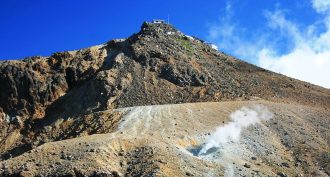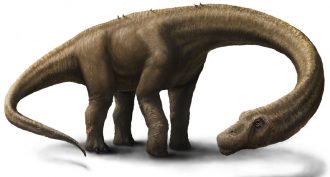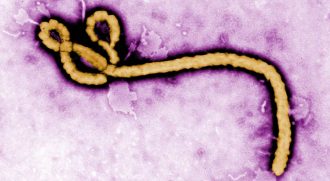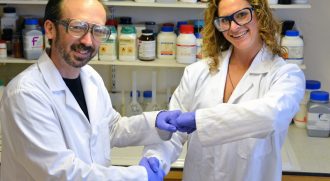
Janet Raloff
Editor, Digital, Science News Explores
Editor Janet Raloff has been a part of the Science News Media Group for more than four decades. While a staff writer at Science News, she covered the environment, toxicology, energy, science policy, agriculture and nutrition. She was among the first to give national visibility to such issues as electromagnetic pulse weaponry and hormone-mimicking pollutants, and was the first anywhere to report on the widespread tainting of streams and groundwater sources with pharmaceuticals. Her writing has won awards from the National Association of Science Writers, International Free Press Association and the Institute of Food Technologists. Over the years, Janet has been an occasional commentator on NPR's "Living on Earth" and her work has appeared in several dozen publications. She is also a founding board member of the Society of Environmental Journalists. In July 2007, while still writing for Science News, Janet took over Science News Explores (then known as Science News for Kids) as a part-time responsibility. Eventually, she expanded the magazine's depth, breadth and publication cycle. In 2013 it became her full-time job (although she still writes the occasional story for Science News). Before joining Science News, Janet was managing editor of Energy Research Reports (outside Boston), a staff writer at Chemistry (an American Chemical Society magazine) and a writer/editor for Chicago's Adler Planetarium. Initially an astronomy major, she earned undergraduate and graduate degrees from the Medill School of Journalism at Northwestern University (with an elective major in physics). She interned with the Office of Cancer Communications (NIH), Argonne National Laboratory, the Atomic Energy Commission (now Energy Department), the Oak Ridger in Tennessee and the Rock Hill Evening Herald in South Carolina.

All Stories by Janet Raloff
-
 Science & Society
Science & SocietyTeen wins Nobel for support of educating girls
Malala Yousafzai survived an attempt on her life by extremists who protested her efforts to see that girls be allowed to go to school. Upon recovery, she expanded her outreach to beyond her Pakistani homeland. She has just become the youngest-ever Nobel Prize winner.
-
 Physics
PhysicsNobel goes for making white LEDs possible
The 2014 Nobel Prize in Physics has been awarded to scientists who discovered how to make blue light-emitting diodes. People really wanted white LEDs. The missing ingredient in making them was a building block: the blue LED.
-
 Earth
EarthNews Brief: Volcano in Japan kills dozens
Japan’s Mount Ontake is a favorite hiking spot. But an unexpected midday eruption on September 27 surprised hundreds on the mountain. Unable to escape, dozens near the summit died.
-
 Health & Medicine
Health & MedicineEbola epidemic could top 1 million, CDC warns
The deadly Ebola epidemic ravaging West Africa has now infected more people than in all previous outbreaks put together. And still the numbers of the sick and dying continue to grow, not shrink.
-
 Fossils
FossilsBiggest dino ever?
This plant-eater would have towered over even a T. rex. A truly huge brute, Dreadnoughtus means ‘fear nothing.’
-
 Animals
AnimalsChef puts eco-bullies on the menu
Some immigrant species can become a nuisance, eating up or displacing the natives. Often people find little incentive to catch and remove the newcomers — unless they find them too yummy to pass up.
-
 Health & Medicine
Health & MedicineEbola emerges in the Congo
The Democratic Republic of Congo (formerly Zaire) is where the Ebola virus was first discovered in 1976. This nation has just been hit again by the disease. Scientists suspect this is a new and independent outbreak — not a spread of the epidemic ravaging West Africa.
-
 Health & Medicine
Health & MedicineExplainer: What is Ebola?
A virus is behind the hemorrhage-inducing infection called Ebola. It causes fevers and often intense bleeding — seemingly from anywhere and everywhere.
-
 Health & Medicine
Health & MedicineFist bumps cleaner than handshakes
A handshake, while welcoming, can transmit lots of germs — many times more than a high five or, especially, a fist bump.
-
 Environment
EnvironmentExplainer: What are endocrine disruptors?
Some chemicals can act like hormones, turning on or off important processes in cells. That can harm development or even trigger disease.
-
 Health & Medicine
Health & MedicineScreen time: Most U.S. teens overindulge
Too many 12- to 15-year olds spend hours each day doing little more than pushing buttons on the TV remote or a computer’s keyboard, a government survey finds.
-
 Environment
EnvironmentBug-killer linked to decline in birds
One of the most popular chemicals used to protect crops from bugs may also take a toll on birds, a Dutch study finds. U.S. farmers also rely on these insecticides, a second study finds.